The most nutrient-dense foods you can eat include kale, spinach, broccoli, blueberries, salmon, sweet potatoes, almonds, quinoa, chia seeds, and dark chocolate. These foods are packed with essential vitamins, minerals, and antioxidants that promote overall health and well-being.
Leafy Greens| Berries| Nuts And Seeds| Cruciferous Vegetables| Fish For Omega-3s| Legumes| Whole Grains| Avocado|
Incorporating them into your diet can provide a wide range of health benefits, such as improved digestion, boosted immunity, enhanced brain function, and increased energy levels. Including these nutrient-dense foods in your meals can help you optimize your nutrient intake and support a healthy lifestyle.
So, let’s dive into the world of nutrient-dense foods and explore their incredible benefits.
Leafy Greens: Powerhouses Of Nutrients
Leafy greens are some of the most nutrient-dense foods you can find. Packed with vitamins, minerals, and antioxidants, these vibrant greens offer a wide range of health benefits. Whether you enjoy them in a salad, blend them into a smoothie, or sauté them as a side dish, leafy greens are a fantastic addition to any diet. Here, we explore the benefits of leafy greens, focusing on two of the most popular varieties: kale and spinach.
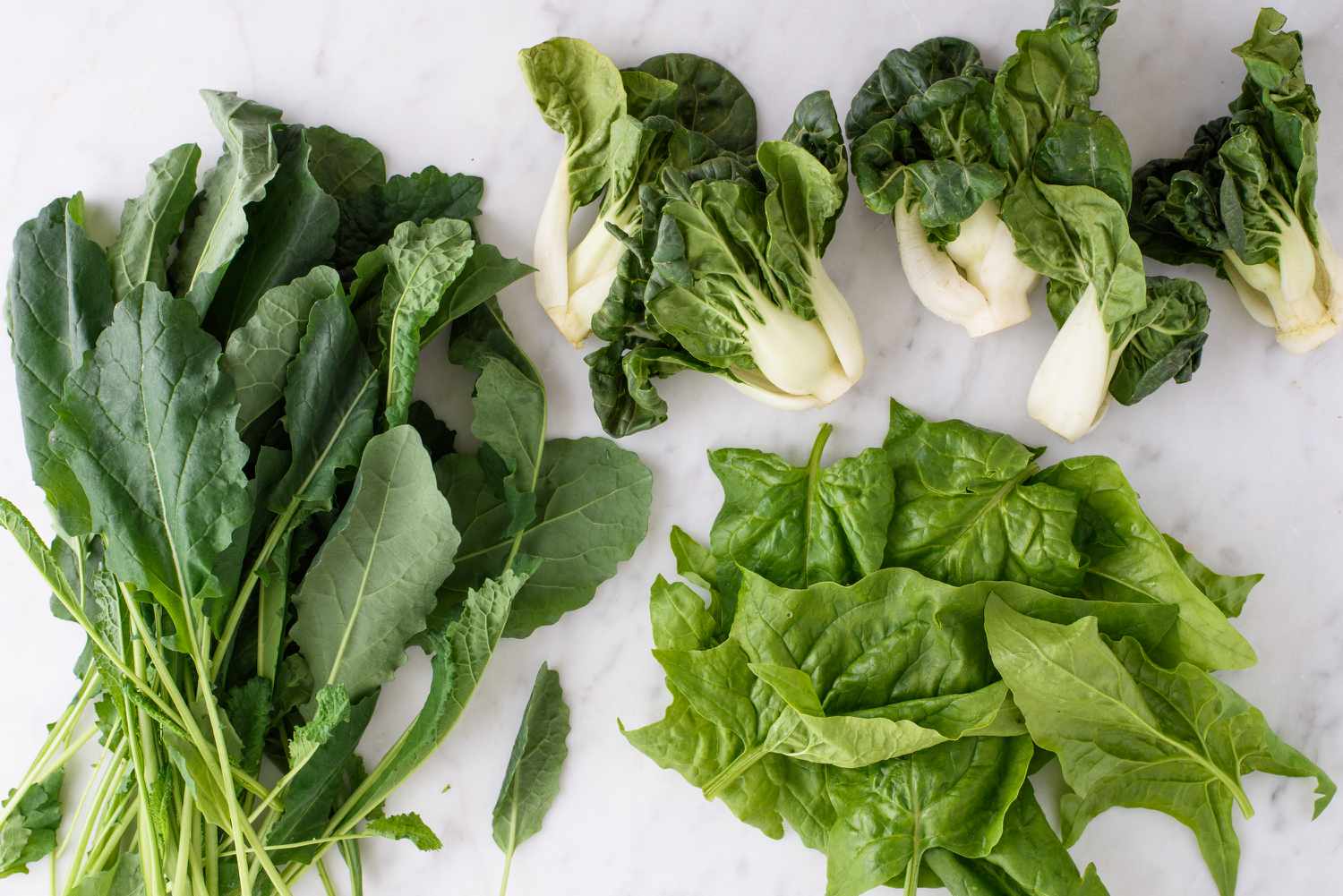
Benefits Of Leafy Greens
Leafy greens offer a multitude of benefits for your overall health and well-being. Here are some key reasons why these powerhouses should be a staple in your diet:
- Rich in vitamins and minerals: Leafy greens are an excellent source of essential vitamins and minerals like vitamin A, vitamin K, vitamin C, folate, iron, and calcium.
- Packed with antioxidants: Antioxidants help protect your cells from damage caused by harmful free radicals. Leafy greens, such as kale and spinach, are abundant in antioxidants like beta-carotene, lutein, and zeaxanthin.
- Promote good digestion: Leafy greens are high in fiber, which aids digestion and helps maintain a healthy gut.
- Support weight management: Leafy greens are low in calories and high in fiber, making them an excellent choice for weight management and maintaining a healthy weight.
- Boost immune function: The vitamins and minerals present in leafy greens help strengthen the immune system, keeping you protected against illnesses and infections.
Kale: A Versatile And Nutrient-packed Green
Kale has gained popularity in recent years, and for good reason. This leafy green is not only incredibly nutritious but also versatile enough to be used in a variety of dishes. Here’s why kale deserves a spot on your plate:
- High in vitamins: Kale is rich in vitamins A, C, and K. Just one cup of kale provides more than your daily recommended intake of vitamin K, crucial for bone health and blood clotting.
- A good source of calcium: Despite being a plant-based food, kale is surprisingly high in calcium, which is essential for strong bones.
- Packed with antioxidants: Kale is a powerhouse of antioxidants, including beta-carotene and vitamin C, which help combat inflammation and oxidative stress.
- Offers versatile culinary options: From sautéing and steaming to adding it to soups or salads, kale can be incorporated into various dishes, providing a burst of vibrant green color and a unique flavor.
Spinach: A Nutrient-dense Choice For Salads And Smoothies
Spinach, with its delicate texture and mild taste, is a highly versatile leafy green renowned for its nutrient density. Consider adding spinach to your meals for these incredible health benefits:
- Loaded with vitamins and minerals: Spinach contains a wide range of vitamins and minerals, including vitamin A, vitamin C, vitamin K, iron, and potassium.
- Excellent source of iron: Iron is essential for carrying oxygen throughout the body, and spinach provides a plant-based source of this vital mineral.
- Low in calories, high in nutrients: Spinach is incredibly low in calories while offering an array of essential nutrients, making it ideal for weight management and maintaining overall health.
- Perfect for salads and smoothies: The mild flavor of spinach makes it a great addition to salads and green smoothies, providing an extra boost of vitamins and minerals to your meals.
A List of 50 Super Healthy Foods: Transform Your Health with These Power-packed Foods!
Berries: Bursting With Antioxidants
Berries are a powerhouse of antioxidants, making them one of the most nutrient-dense foods you can eat. Packed with vitamins and minerals, they are an excellent choice for promoting overall health and well-being.
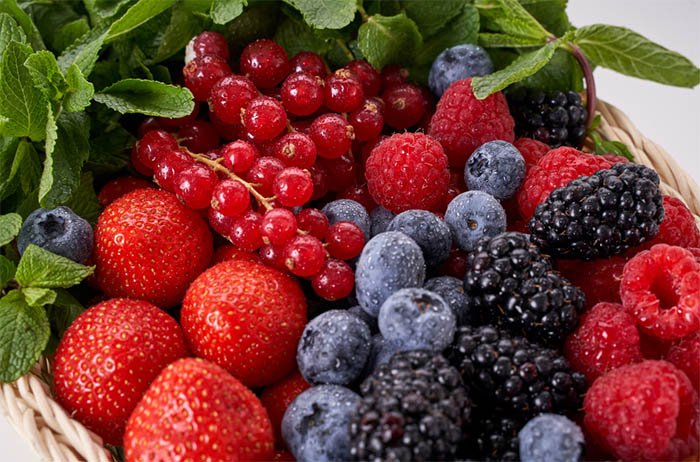
Introduction To Berries As Superfoods
Berries are not only delicious but also incredibly nutritious. These small, colorful fruits are packed with essential vitamins, minerals, and antioxidants that can benefit your health in numerous ways. Among their many benefits, one standout feature is their high antioxidant content. Antioxidants are compounds that help protect your cells from free radical damage, reducing the risk of chronic diseases and inflammation.
Blueberries: Rich In Antioxidants And Vitamin C
Blueberries are often hailed as a superfood due to their incredible nutrient profile. These tiny berries are bursting with antioxidants, including anthocyanins, which give them their deep blue color. Antioxidants play a vital role in combating oxidative stress and reducing inflammation in your body. Additionally, blueberries are an excellent source of vitamin C, important for immune function and collagen production, which helps maintain healthy skin.
Strawberries: Packed With Fiber And Vitamin C
Delicious and refreshing, strawberries are another nutrient-dense berry that deserves a place in your diet. These juicy berries are not only a rich source of vitamin C but are also packed with dietary fiber. Fiber is essential for digestive health, promoting regular bowel movements and preventing constipation. Additionally, vitamin C in strawberries helps support your immune system, wards off infections, and aids in collagen synthesis for healthy skin and tissues.
Healthy Snacks For Married People : Boost Your Energy
Nuts And Seeds: Healthy Fats And Essential Nutrients
When it comes to your diet, incorporating nuts and seeds can be a game-changer. Not only are they delicious and versatile, but they are also packed with healthy fats and essential nutrients that are beneficial for your overall health. In this article, we will explore the benefits of incorporating nuts and seeds into your diet, specifically focusing on almonds and chia seeds.
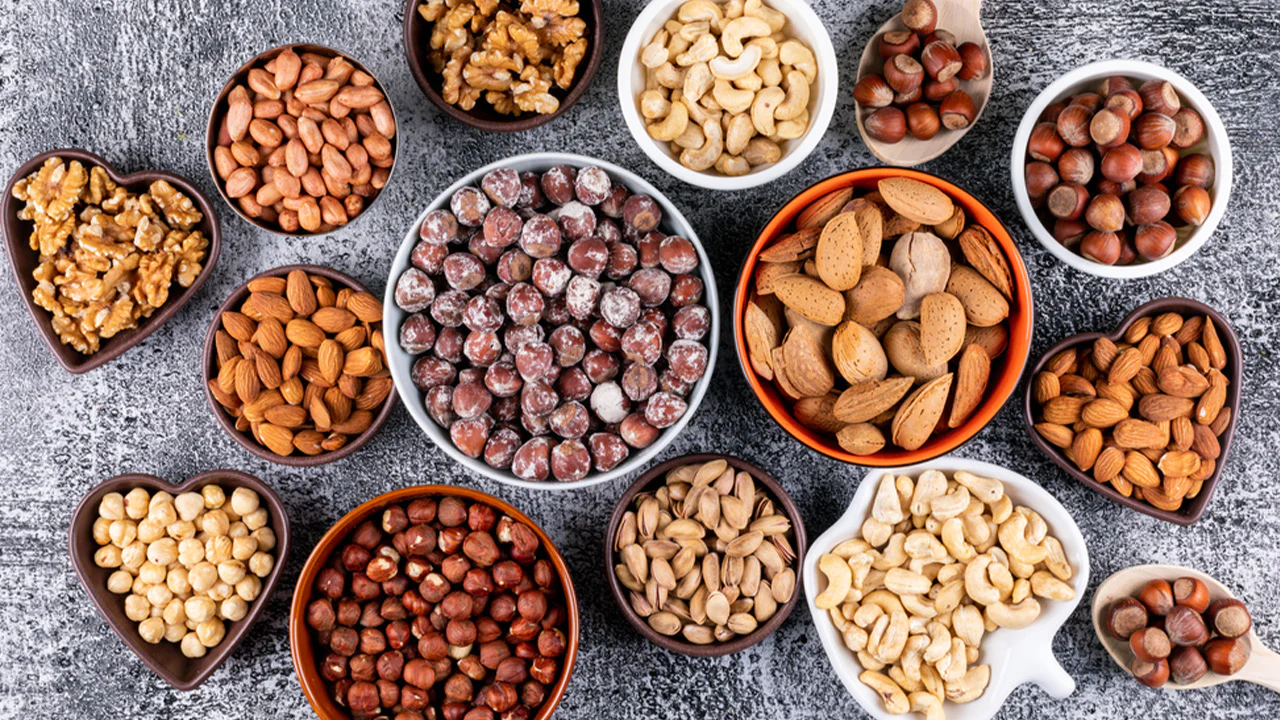
The Benefits Of Incorporating Nuts And Seeds Into Your Diet
Adding nuts and seeds to your daily meals can offer a myriad of health benefits. These nutrient-dense foods are rich in healthy fats, fiber, protein, vitamins, and minerals that your body needs to function optimally. Here are some of the incredible benefits of including nuts and seeds in your diet:
- They are a great source of plant-based protein, making them an excellent choice for vegetarians and vegans.
- They are packed with heart-healthy fats, including monounsaturated and polyunsaturated fats, which can help reduce the risk of heart disease.
- Nuts and seeds are high in dietary fiber, which aids in digestion, promotes satiety, and supports a healthy weight.
- They are rich in antioxidants, which help protect your cells from damage caused by free radicals.
- Nuts and seeds contain essential vitamins and minerals such as vitamin E, magnesium, potassium, and zinc that contribute to overall well-being.
Almonds: A Nutritious Snack Rich In Vitamin E And Healthy Fats
Almonds are not only a delicious snack but also a nutritional powerhouse. These crunchy nuts are a great source of healthy fats, protein, and fiber. They contain high levels of vitamin E, a powerful antioxidant that helps protect your cells from oxidative stress. Incorporating almonds into your diet can contribute to improved heart health, brain function, and skin health.
Let’s take a look at the nutritional profile of almonds:
| Nutrient | Amount per 1 ounce (28g) |
|---|---|
| Calories | 161 |
| Protein | 6g |
| Fat | 14g |
| Fiber | 3.5g |
| Vitamin E | 7.3mg |
As you can see, almonds pack a punch when it comes to nutrition. They are a convenient and satisfying snack option that can be enjoyed on their own or added to salads, oatmeal, or smoothies.
Chia Seeds: A Plant-based Source Of Omega-3 Fatty Acids And Fiber
Chia seeds have gained popularity in recent years due to their impressive nutrient profile. These tiny seeds are an excellent source of plant-based omega-3 fatty acids, which are essential for brain health, heart health, and reducing inflammation in the body. Additionally, chia seeds are rich in dietary fiber, which aids in digestion and promotes a feeling of fullness.
Here is a breakdown of the nutritional value of chia seeds:
| Nutrient | Amount per 1 ounce (28g) |
|---|---|
| Calories | 138 |
| Protein | 4g |
| Fat | 9g |
| Fiber | 11g |
| Omega-3 Fatty Acids | 5g |
With their slightly nutty flavor, chia seeds can be easily incorporated into your diet. They can be sprinkled over yogurt, added to smoothies, or used as an egg substitute in baking recipes.
Incorporating nuts and seeds like almonds and chia seeds into your daily diet is a simple and effective way to boost your nutrient intake and support your overall health. So, why not snack on some almonds or sprinkle chia seeds on your next meal?
Cruciferous Vegetables: A Nutritional Powerhouse
Cruciferous vegetables, such as kale, broccoli, and Brussels sprouts, are a nutritional powerhouse packed with essential vitamins, minerals, and antioxidants. Incorporating these nutrient-dense foods into your diet can provide numerous health benefits and contribute to overall well-being.
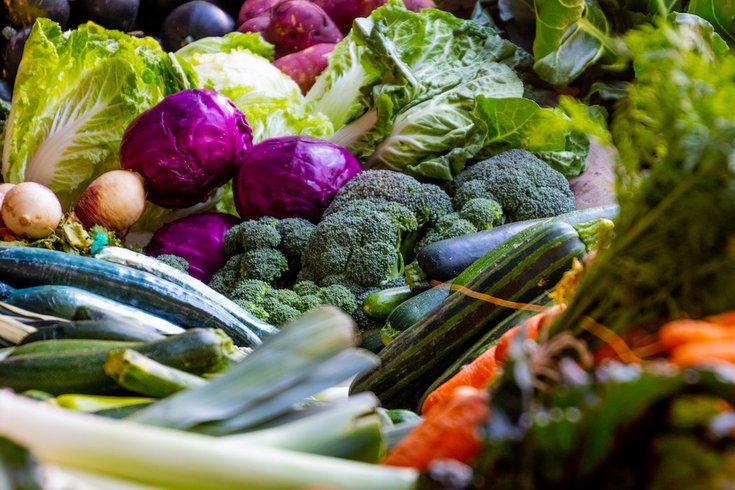
Introduction To Cruciferous Vegetables And Their Health Benefits
Cruciferous vegetables are a nutritional powerhouse that should have a prominent place in your diet. Packed with essential nutrients and health-promoting compounds, these vegetables offer a range of benefits to support your overall well-being. From boosting immune health to reducing the risk of chronic diseases, cruciferous vegetables are a must-have on your plate. Here’s a closer look at two popular cruciferous vegetables and their impressive nutritional profile.
Broccoli: A Versatile Vegetable With High Levels Of Vitamins And Antioxidants
Broccoli, a member of the cruciferous vegetable family, is a versatile veggie that boasts an array of vitamins, minerals, and antioxidants. This vibrant green vegetable contains high levels of vitamin C, vitamin K, and folate, which are essential for immune function, bone health, and cell growth. It also packs a powerful antioxidant punch, with compounds like glucosinolates and sulforaphane that help to combat oxidative stress and protect against chronic diseases like cancer. When it comes to incorporating broccoli into your meals, the possibilities are endless. You can add it to salads, stir-fries, or enjoy it steamed as a side dish. Its mild, slightly bitter taste pairs well with various flavors, making it a versatile and nutritious addition to any recipe. Whether you’re looking to strengthen your immune system or improve your antioxidant defense, including broccoli in your diet is a smart choice.
Brussels Sprouts: A Nutrient-packed Veggie That Supports Immune Health
Brussels sprouts, another member of the cruciferous vegetable family, pack a nutritional punch that can support your immune health and overall well-being. These mini cabbages are rich in vitamin C, vitamin K, and fiber, making them a perfect addition to a well-rounded diet. Vitamin C is known for its immune-boosting properties, while vitamin K plays a crucial role in blood clotting and bone health. Additionally, Brussels sprouts are a great source of fiber, which aids in digestion and helps maintain a healthy weight. This nutrient-dense vegetable also contains antioxidants that combat inflammation and protect against chronic diseases. The unique taste of Brussels sprouts, when properly cooked, offers a deliciously satisfying experience that can easily complement your favorite dishes. By incorporating Brussels sprouts into your meals, you can reap the abundant health benefits they provide. Roasted, sautéed, or even raw in salads, these small yet mighty vegetables pack a powerful nutrient punch that your body will thank you for. In conclusion, cruciferous vegetables like broccoli and Brussels sprouts offer numerous health benefits. From their high vitamin and antioxidant content to their ability to support immune health, these nutrient-dense veggies are an excellent addition to any diet. So, why not explore exciting recipes and creative ways to include these nutritional powerhouses in your meals today?
Fish: A Protein-rich Source Of Omega-3s
Fish is an excellent source of protein and is rich in omega-3 fatty acids, making it one of the top nutrient-dense foods you can include in your diet. Its nutritional benefits make it an ideal choice for those looking to improve their health.
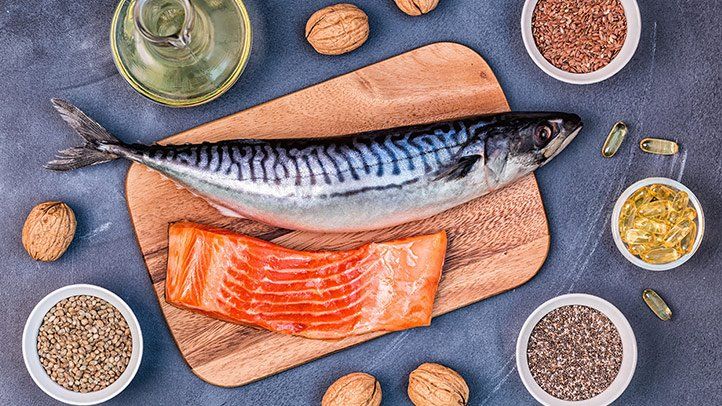
The Importance Of Including Fish In A Balanced Diet
When it comes to a nutrient-dense diet, incorporating fish is a wise choice. Fish is not only a protein-rich food but also an excellent source of Omega-3 fatty acids. These essential fatty acids play a vital role in maintaining a healthy heart, reducing inflammation, improving brain function, and even enhancing mood. Including fish in your balanced diet can provide you with a wide range of health benefits and help meet your nutritional needs.
Salmon: Packed With Omega-3 Fatty Acids And High-quality Protein
If you’re looking for a fish that offers a generous amount of omega-3 fatty acids, salmon should be at the top of your list. This fatty fish is not only delicious, but it is also packed with high-quality protein, making it an ideal choice for those following a balanced diet. Just a 100-gram serving of salmon provides you with an impressive amount of omega-3s, which contribute to the health of your heart and brain. Additionally, salmon is an excellent source of vitamins D and B, selenium, and potassium, making it a nutrient powerhouse.
| Nutrient | Amount per 100g of Salmon |
|---|---|
| Omega-3 Fatty Acids | 2.8 grams |
| Protein | 22 grams |
| Vitamin D | 18.9 micrograms |
| Vitamin B12 | 4.9 micrograms |
With its impressive nutritional profile, salmon can help you meet your body’s protein and omega-3 needs while offering a delicious and versatile option for your meals.
Sardines: A Small Fish With Big Nutritional Benefits
Despite their small size, sardines pack a nutritional punch. They are an excellent source of omega-3 fatty acids, calcium, iron, vitamin D, and vitamin B12. Adding sardines to your diet can help strengthen your bones, boost your immune system, and support cardiovascular health. Moreover, sardines are also an eco-friendly choice as they are a sustainable seafood option.
- Rich in omega-3 fatty acids
- Source of calcium and iron
- Contains vitamin D and vitamin B12
- Eco-friendly seafood choice
With their unique flavor and versatility, sardines can be enjoyed on their own, added to salads or pasta dishes, or used to elevate your favorite recipes.
A List of 50 Super Healthy Foods: Transform Your Health with These Power-packed Foods!
Legumes: High In Protein And Fiber
Legumes, such as beans and lentils, are incredibly nutrient-dense foods, packed with high amounts of protein and fiber. They offer a great source of plant-based nutrients for a balanced diet.
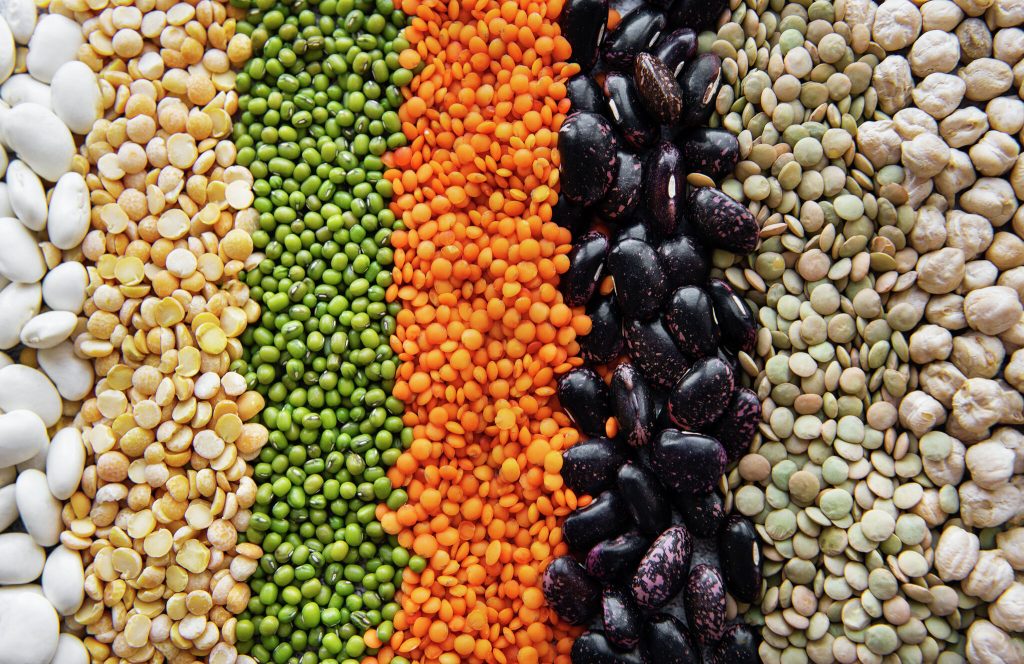
The Nutritional Value Of Legumes
Legumes are a powerhouse of nutrients, making them an excellent addition to any diet. Packed with protein, fiber, vitamins, and minerals, legumes offer numerous health benefits. They are not only an ideal choice for vegetarians and vegans looking to meet their protein requirements but also for anyone wanting to improve their overall nutrition.
Black Beans: A Protein And Fiber-rich Option For Vegetarian Meals
Black beans, also known as turtle beans, are a fantastic choice for those seeking a plant-based protein source. They are rich in both protein and fiber, making them incredibly filling and satisfying. With a subtle, earthy flavor, black beans can be used in a variety of dishes, from salads and soups to main courses and dips.
Here are some key nutritional components of black beans:
| Nutrient | Amount |
|---|---|
| Protein | Approximately 15 grams per cup |
| Fiber | Approximately 15 grams per cup |
| Iron | Approximately 1.8 milligrams per cup |
| Folate | Approximately 256 micrograms per cup |
As you can see, black beans provide a substantial amount of protein and fiber, making them a wonderful option for both vegetarians and carnivores alike. Incorporating black beans into your meals not only boosts your protein intake but also supports a healthy digestive system.
Lentils: A Versatile Legume Packed With Iron And Folate
Lentils are another legume variety that offers an impressive array of nutrients. These tiny, lens-shaped legumes are highly versatile and can be cooked in a variety of delicious ways. Not only do lentils provide an ample amount of protein and fiber, but they are also a fantastic source of iron and folate, which are essential for maintaining overall health.
Here’s a breakdown of the nutritional content found in lentils:
- Protein: Approximately 18 grams per cup
- Fiber: Approximately 16 grams per cup
- Iron: Approximately 6.6 milligrams per cup
- Folate: Approximately 358 micrograms per cup
With their nutritional profile, lentils offer a multitude of health benefits, including improved heart health, enhanced digestion, and stable blood sugar levels. Whether used in salads, soups, stews, or as a side dish, lentils are an excellent addition to any diet.
9 Tricks for Healthier, Fuller-Looking Hair: Power up Your Haircare Routine!
Whole Grains: Essential For A Balanced Diet
Whole grains are an essential part of a balanced diet. They are among the top 10 most nutrient-dense foods and offer a wide range of health benefits. Incorporating whole grains into your meals can boost your nutritional intake and promote overall well-being.
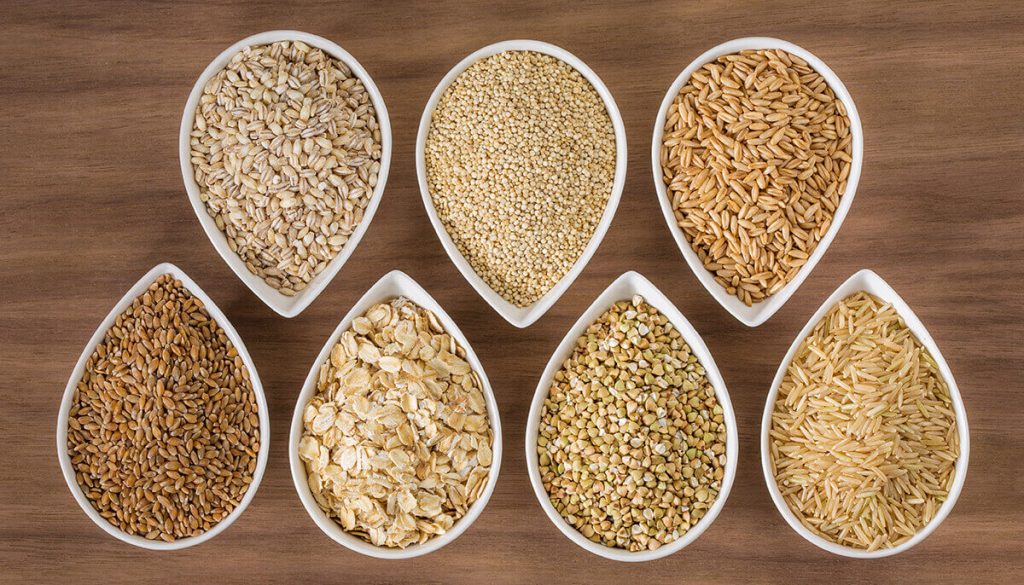
The Benefits Of Incorporating Whole Grains Into Your Meals
Whole grains are an essential component of a balanced diet, providing a wide range of nutrients to support overall health and well-being. Unlike refined grains, whole grains retain their bran, germ, and endosperm, making them rich in fiber, vitamins, minerals, and antioxidants. By incorporating whole grains into your meals, you can reap numerous benefits that contribute to a healthier lifestyle.
Quinoa: A Complete Protein Source Packed With Essential Vitamins And Minerals
Quinoa is a versatile whole grain that stands out for its impressive nutrient profile. This ancient grain is hailed as a complete protein source, as it contains all nine essential amino acids required for optimal bodily functions. Additionally, quinoa is packed with important vitamins and minerals such as manganese, magnesium, iron, and folate. Adding quinoa to your diet can support muscle growth, aid in tissue repair, and promote a healthy immune system.
Oats: A Fiber-rich Grain That Supports Heart Health
Oats are a fiber-rich grain that provides numerous health benefits, particularly for heart health. Their soluble fiber content helps to reduce LDL cholesterol levels and improves overall cardiovascular function. Oats are also a great source of important nutrients, including manganese, phosphorus, and vitamin B1. Incorporating oats into your diet can help maintain a healthy weight, improve digestion, and support a strong immune system.
Examples Of Whole Grains To Include In Your Meals:
Incorporating whole grains into your meals is easier than you might think. Here are some examples of nutrient-dense whole grains to add to your shopping list:
- Brown rice
- Barley
- Buckwheat
- Millet
- Wild rice
- Amaranth
- Sorghum
- Spelt
- Triticale
- Whole wheat
Quick And Easy Ways To Incorporate Whole Grains Into Your Meals:
| Meal | Ideas |
|---|---|
| Breakfast | Add oats or quinoa to your morning smoothie or prepare a wholesome bowl of oatmeal topped with berries and nuts. |
| Lunch | Swap refined grains for whole grain bread, buns, or wraps for your sandwiches or wraps. |
| Dinner | Opt for brown rice, quinoa, or whole wheat pasta as a base for your main dishes. |
| Snacks | Choose whole grain crackers or popcorn as a nutritious and satisfying snack option. |
Incorporating whole grains into your meals doesn’t have to be complicated. By making these simple swaps and additions, you can enhance the nutritional value of your diet and enjoy the many benefits that whole grains have to offer.
Lungs Healthy Food With Doctor’s Advice: Boost Your Respiratory Health!
Avocado: A Nutrient-dense Fruit
Avocado, with its rich and creamy texture, is not only a delicious addition to various dishes but also packs a nutritional punch. This nutrient-dense fruit is popular among health-conscious individuals for its array of health benefits and versatility in the kitchen. From healthy fats to an abundance of essential vitamins, avocados offer a wide range of nutrients that contribute to overall well-being. In this article, we will explore the introduction to avocados and their health benefits, delve into the healthy fats and vitamins found in avocados, and discover creative ways to incorporate this superfood into your daily diet.
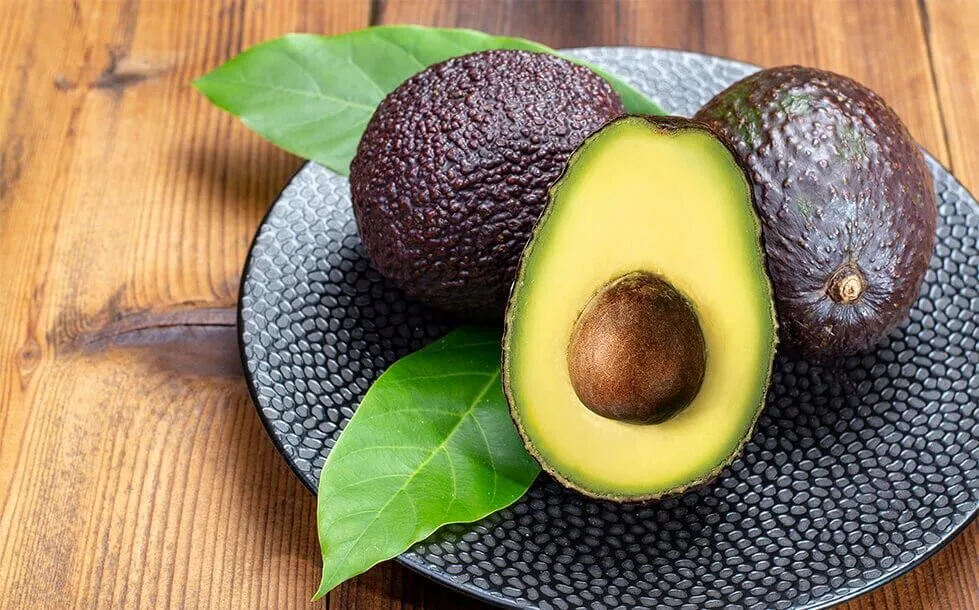
Introduction To Avocados And Their Health Benefits
Avocados, often referred to as the “alligator pear” due to their unique shape and rough skin, are native to South and Central America. Over the years, they have gained immense popularity worldwide due to their impressive health benefits. These green powerhouses are loaded with essential nutrients that promote optimal health and well-being.
One of the key health benefits of avocados is their high content of monounsaturated fats. These heart-healthy fats play a vital role in maintaining good cholesterol levels and reducing the risk of heart disease. Additionally, avocados are a great source of dietary fiber, which aids in digestion and helps regulate blood sugar levels.
Another noteworthy health benefit of avocados is their impressive nutrient profile. They are packed with important vitamins such as vitamin K, vitamin C, vitamin E, and various B vitamins. These vitamins play essential roles in supporting the immune system, promoting healthy skin, and boosting brain function.
Healthy Fats And Vitamins Found In Avocados
Avocados are known for their healthy fat content, primarily monounsaturated fats. These fats are instrumental in maintaining healthy cholesterol levels and have been linked to a reduced risk of heart disease. Incorporating avocados into your diet can contribute to a well-balanced and heart-healthy eating plan.
In addition to healthy fats, avocados are also rich in a variety of essential vitamins. Vitamin K, for example, is essential for proper blood clotting and bone health. Avocados are also a good source of vitamin C, a powerful antioxidant that supports the immune system and collagen production for healthy skin. Vitamin E, another antioxidant in avocados, helps protect cells from damage and plays a role in maintaining healthy hair and skin. Moreover, avocados contain a range of B vitamins, including vitamin B-6 and folate, which are crucial for brain health and energy production within the body.
Creative Ways To Incorporate Avocados Into Your Diet
Whether you prefer to enjoy avocados as a spread, in salads, or as a key ingredient in smoothies, there are numerous creative ways to incorporate this nutrient-dense fruit into your daily diet.
Here are a few ideas to help you make the most of avocados:
- Spread mashed avocado on whole-grain toast and top with a sprinkle of salt and pepper for a healthy and satisfying breakfast or snack.
- Blend avocados into a creamy and nutritious smoothie by combining them with your favorite fruits and a liquid base like almond milk or coconut water.
- Add diced avocados to salads, sandwiches, or wraps for a burst of creaminess and a boost of essential nutrients.
- Make a zesty guacamole by mashing avocados with lime juice, diced tomatoes, onions, and a hint of chili for an irresistible dip or topping.
- Try using avocado as a substitute for butter or oil in baking recipes for a healthier twist.
- Incorporate avocado slices into sushi rolls or use them as a topping for tacos or grilled meats for a unique and flavorful twist.
With these creative ideas, you can enjoy all the goodness avocados have to offer while adding a nutritional boost to your meals and snacks.
10 Powerful Steps to Improve Your Health
Frequently Asked Questions Of 10 Of The Most Nutrient-dense Foods You Can Eat
What Is The Most Nutrient-dense Foods You Can Eat?
The most nutrient-dense foods you can eat include leafy greens, berries, nuts and seeds, fatty fish, and whole eggs. These foods are rich in vitamins, minerals, and antioxidants, providing a wide range of health benefits. Incorporating them into your diet can support overall well-being and help meet your nutritional needs efficiently.
What Are The 20 Most Nutritious Food?
The 20 most nutritious foods include spinach, kale, broccoli, blueberries, strawberries, salmon, eggs, nuts, quinoa, lentils, chickpeas, sweet potatoes, avocados, almonds, oranges, turmeric, ginger, garlic, chia seeds, and dark chocolate. These foods are packed with essential vitamins, minerals, and antioxidants.
What 2 Foods Can You Survive On?
The two foods you can survive on are rice and beans. They provide a good balance of carbohydrates and protein for sustenance.
What Are 5 Examples Of Nutrient-dense Foods That You Typically Eat?
Examples of nutrient-dense foods typically eaten include spinach, salmon, avocados, quinoa, and almonds.
What Are The Most Nutrient-dense Foods?
Some of the most nutrient-dense foods include kale, salmon, spinach, berries, beans, and almonds.
Why Should I Eat Nutrient-dense Foods?
Eating nutrient-dense foods can improve your overall health, boost your immune system, and provide essential vitamins and minerals.
How Do Nutrient-dense Foods Benefit My Body?
Nutrient-dense foods can fuel your body with the necessary nutrients for energy, support weight management, and reduce the risk of chronic diseases.
Which Fruits And Vegetables Are Considered Nutrient-dense?
Fruits and vegetables like broccoli, bell peppers, oranges, and strawberries are known to be highly nutrient-dense and beneficial for your health.
Can Nutrient-dense Foods Help With Weight Loss?
Yes, nutrient-dense foods can help with weight loss as they are low in calories but high in essential nutrients, making you feel satisfied and nourished.
Are Whole Grains Considered Nutrient-dense?
Yes, whole grains like quinoa, brown rice, and oats are nutrient-dense as they contain fiber, vitamins, minerals, and healthy antioxidants.
Conclusion
To wrap up, incorporating nutrient-dense foods into your diet is a smart step towards optimal health. These powerhouses, such as salmon, kale, and almonds, deliver a wide range of essential vitamins, minerals, and antioxidants. By adding them to your meals, you can fuel your body with the nourishment it needs, supporting your overall well-being.
So, don’t hesitate to embrace these nutritional powerhouses and make them a regular part of your eating habits. Your body will thank you!
Leafy Greens| Berries| Nuts And Seeds| Cruciferous Vegetables| Fish For Omega-3s| Legumes| Whole Grains| Avocado|

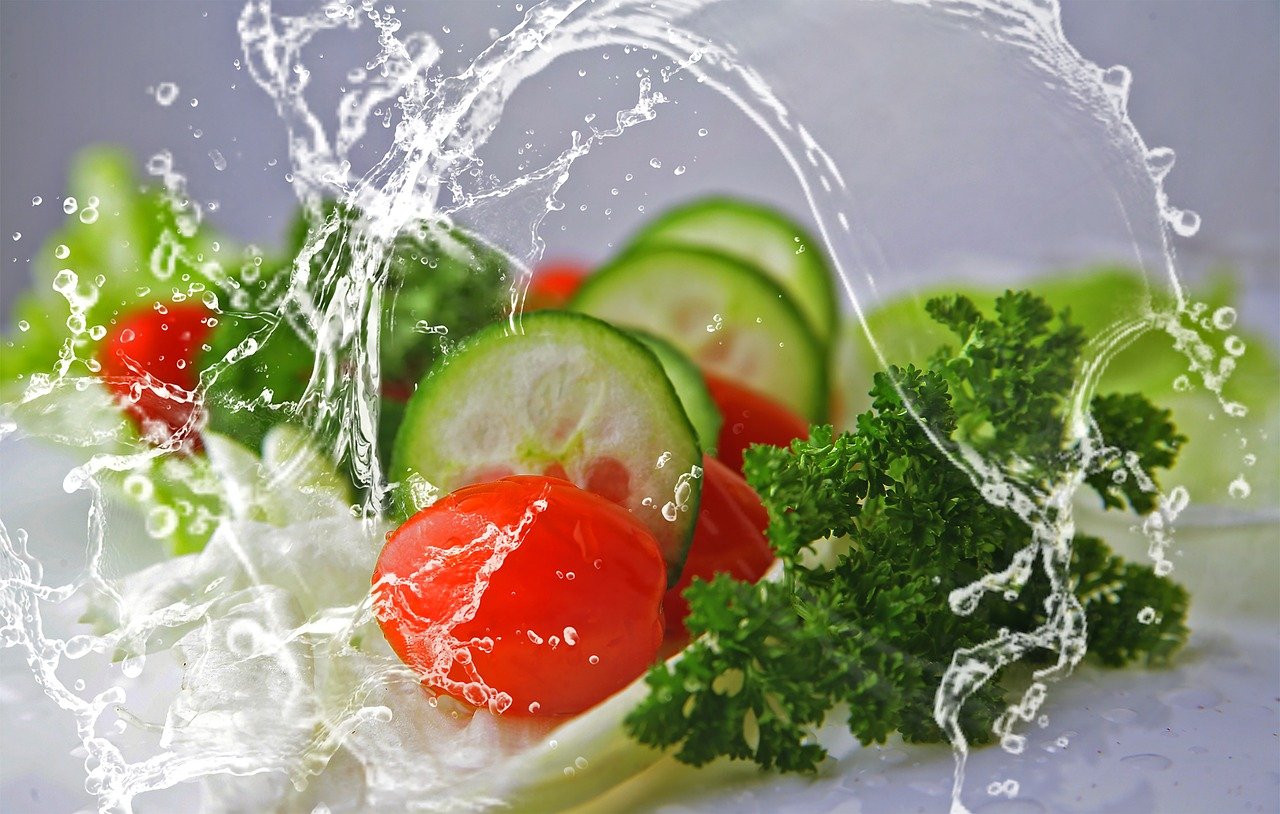

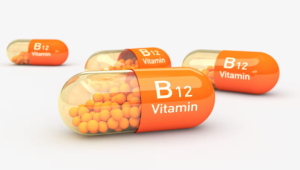




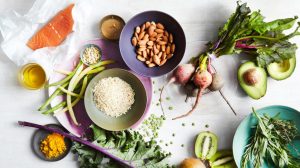
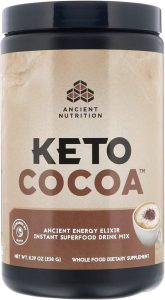

Be First to Comment